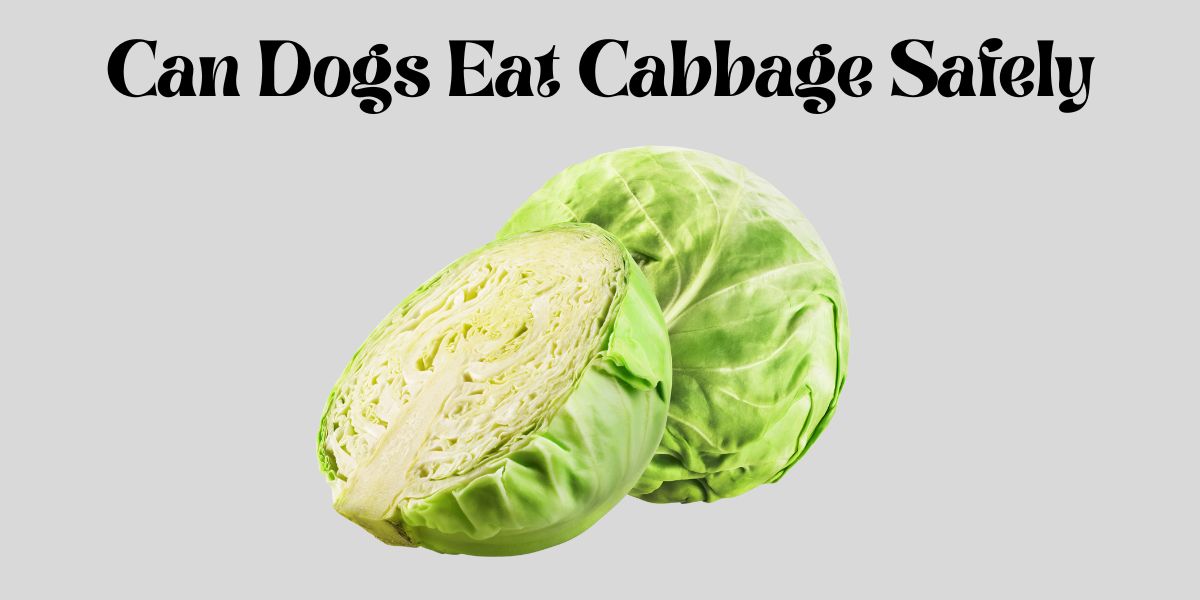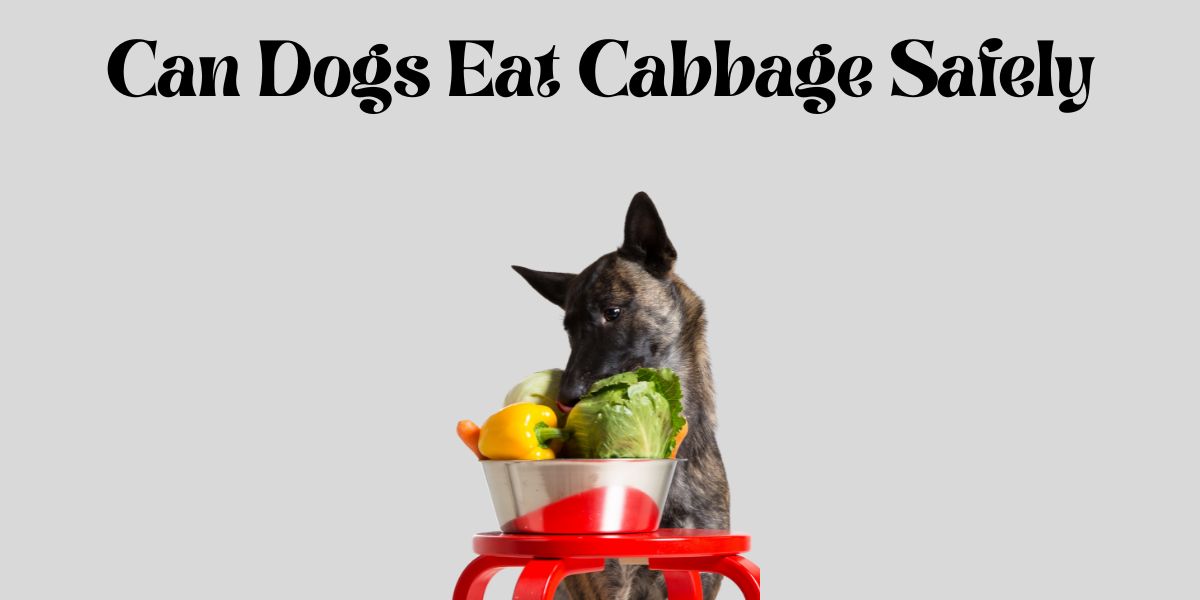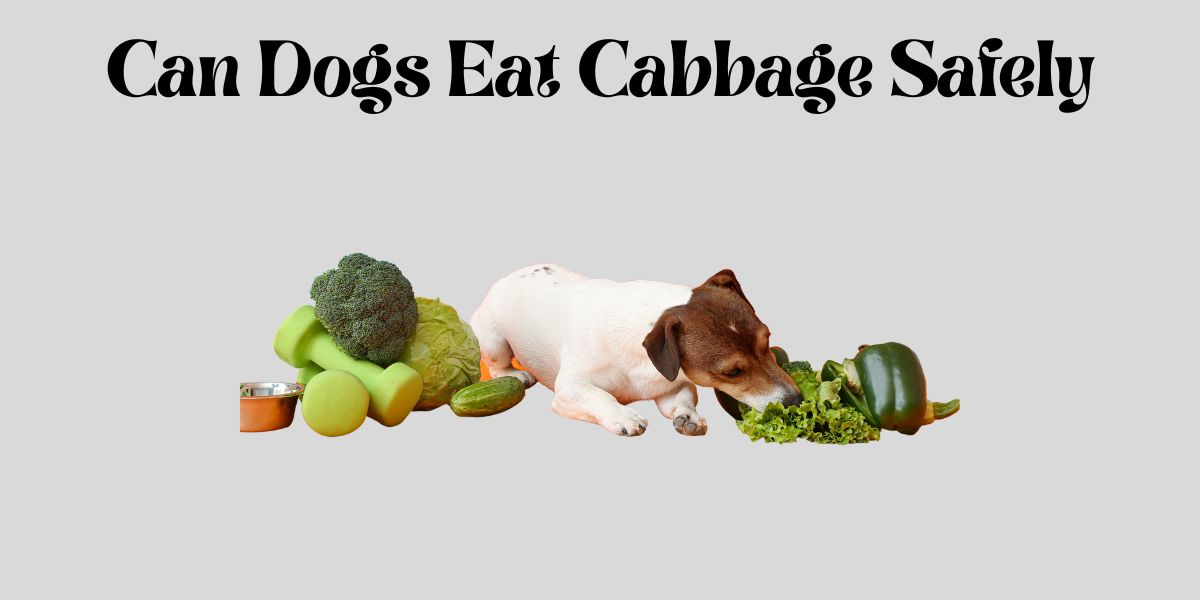Can Dogs Eat Cabbage Safely?
Curious about whether dogs can safely munch on cabbage? If you’ve ever pondered over this dietary dilemma, you’re not alone. While dogs are carnivores by nature, their diet can occasionally include some vegetables. In the case of cabbage, the answer is yes, dogs can eat it safely, in moderation. Packed with fiber, vitamins, and minerals, cabbage can be a healthy addition to your furry friend’s diet. However, it’s crucial to introduce it gradually and watch for any signs of digestive distress. So, next time you’re thinking of sharing a leafy snack with your pup, feel free to offer them a small portion of cabbage as a treat.
Overview of Cabbage
What is Cabbage?

Cabbage is a leafy vegetable that belongs to the Brassica family. It is known for its round shape and dense leaves, which come in various shades of green, red, and purple. Cabbage is widely consumed around the world and is often used in various cuisines due to its versatility and nutritional value.
Nutritional Value of Cabbage
Cabbage is a highly nutritious vegetable that is low in calories and packed with essential vitamins and minerals. It is an excellent source of vitamin C, vitamin K, and vitamin B6. Additionally, cabbage is rich in dietary fiber, which helps promote a healthy digestive system. It also contains antioxidants that can help protect the body against cell damage and boost overall health.
Health Benefits of Cabbage
Consuming cabbage regularly can offer numerous health benefits. It may help reduce the risk of chronic diseases such as heart disease and certain types of cancer. Cabbage also supports digestion, boosts the immune system, and promotes skin health. With its impressive array of nutrients, cabbage is a valuable addition to a healthy diet.
Is Cabbage Safe for Dogs?
Can Dogs Eat Cabbage?

Yes, dogs can safely eat cabbage in moderation. Cabbage can be a healthy and nutritious addition to a dog’s diet when prepared and served properly. However, it is essential to take certain factors into consideration to ensure the safety and well-being of your furry friend.
Potential Risks of Feeding Cabbage to Dogs
While cabbage is generally safe for dogs, it can pose certain risks if not prepared or served correctly. Some dogs may have difficulty digesting cabbage, leading to gas and digestive upsets. Certain dog breeds, such as those prone to thyroid issues, should avoid consuming large amounts of cabbage due to its goitrogenic properties. Additionally, allergic reactions to cabbage can occur, although they are relatively rare.
Preparing Cabbage for Dogs
Cooked or Raw Cabbage?
Both cooked and raw cabbage can be fed to dogs, depending on their preferences and digestive tolerance. Raw cabbage retains more nutrients, while cooked cabbage may be easier to digest for some dogs. It is essential to monitor your dog’s reaction to each preparation method and adjust accordingly.
How to Prepare Cabbage for Dogs
To prepare cabbage for your dog, start by washing it thoroughly to remove any dirt or pesticides. Remove the tough outer leaves and chop the cabbage into small, manageable pieces. If you choose to cook the cabbage, steam or boil it until it becomes tender. Avoid adding any seasonings or spices, as they can be harmful to dogs. Always serve the cabbage in moderation to prevent any potential digestive issues.
Serving Size for Dogs
When introducing cabbage to your dog’s diet, it is crucial to start with small portions and observe their reaction. As a general guideline, you can feed your dog about one to two tablespoons of cabbage per meal, depending on their size and overall diet. Remember to minimize the amount of cabbage given if your dog experiences any digestive discomfort.
Health Benefits of Cabbage for Dogs
High in Fiber
Cabbage is an excellent source of dietary fiber, which plays a vital role in maintaining a healthy digestive system for dogs. Fiber can help regulate bowel movements, prevent constipation, and promote overall digestive health. By including cabbage in your dog’s diet, you can support their gastrointestinal function and prevent common digestive issues.
Rich in Vitamins and Minerals
Cabbage is packed with essential vitamins and minerals that are beneficial for dogs. Vitamin C, for example, helps support the immune system and fight off infections. Vitamin K is essential for proper blood clotting, while vitamin B6 aids in brain development and function. The minerals found in cabbage, such as potassium and manganese, contribute to various bodily functions and overall wellbeing.
Helps with Digestive Health
The high fiber content in cabbage can help improve digestive health in dogs. Fiber acts as a natural prebiotic, promoting the growth of beneficial bacteria in the gut. This, in turn, enhances nutrient absorption, regulates bowel movements, and supports a healthy gastrointestinal tract. Including cabbage in your dog’s diet can assist in maintaining optimal digestive function.
Supports Immune System
The vitamin C content in cabbage plays a crucial role in supporting a dog’s immune system. Vitamin C acts as an antioxidant, protecting the body against harmful free radicals and boosting immune function. By incorporating cabbage into your dog’s meals, you can help strengthen their immune system and improve their overall health and resilience.
May Have Anti-Cancer Properties
Cabbage contains compounds called glucosinolates, which have been shown to have potential anti-cancer properties. While further research is needed regarding their effectiveness in dogs, these compounds may help prevent the formation and growth of cancer cells. However, it is important to note that cabbage should not be considered a standalone treatment for cancer, and consultation with a veterinarian is crucial in such cases.
Potential Risks and Considerations
Gas and Digestive Upsets
Some dogs may experience gas, bloating, or other digestive upsets when consuming cabbage. This is typically due to the high fiber content, which can be difficult for certain dogs to digest. Monitoring your dog’s reaction and adjusting the serving size or preparation method can help minimize these issues.
Allergic Reactions
While rare, allergic reactions to cabbage can occur in dogs. Symptoms may include itching, hives, swelling, or difficulty breathing. If you notice any signs of an allergic reaction after feeding your dog cabbage, it is important to discontinue its consumption and contact a veterinarian immediately.
Thyroid Issues
Cabbage belongs to the cruciferous vegetable family, which contains substances that can interfere with thyroid function in large amounts. If your dog has a history of thyroid issues, it is advisable to consult with a veterinarian before incorporating cabbage into their diet.
Risks for Certain Dog Breeds
Certain dog breeds, such as those prone to thyroid issues, should consume cruciferous vegetables like cabbage in moderation. These breeds include Boxers, Doberman Pinschers, and Akitas, among others. Excessive consumption of goitrogenic vegetables may negatively affect thyroid function in susceptible dogs.
Moderation is Key
As with any new addition to a dog’s diet, moderation is key when feeding cabbage. While cabbage offers many health benefits, excessive consumption can lead to digestive issues or other complications. Consult with a veterinarian before making any significant changes to your dog’s diet and always monitor their reaction to new foods.
Cabbage Varieties for Dogs
Green Cabbage
Green cabbage is the most common and widely available variety. It has a slightly peppery taste and is packed with nutrients that can benefit dogs. When preparing green cabbage for dogs, ensure it is fresh, crisp, and thoroughly washed.
Red Cabbage
Red cabbage is known for its vibrant purple-red color and slightly sweeter taste compared to green cabbage. It contains the same nutritious properties and can be fed to dogs in the same way as green cabbage.
Napa Cabbage
Napa cabbage, also known as Chinese cabbage, has a milder flavor and more delicate leaves compared to other cabbage varieties. It can be a good option for dogs who are sensitive to the strong taste of green or red cabbage.
Savoy Cabbage
Savoy cabbage has crinkled leaves and a milder flavor compared to green cabbage. It is rich in nutrients and can be a suitable choice for dogs who prefer a more delicate taste and texture.
Other Vegetables for Dogs

Vegetables Safe for Dogs
In addition to cabbage, there are several other vegetables that are safe and beneficial for dogs. Carrots, broccoli, sweet potatoes, and green beans are just a few examples. These vegetables can provide additional vitamins, minerals, and fiber to support a balanced diet for dogs.
Vegetables Toxic to Dogs
While many vegetables are safe for dogs, some can be toxic and should be avoided. Onions, garlic, and mushrooms are known to be harmful to dogs if consumed in large quantities. It is always important to research which vegetables are safe before introducing them into your dog’s diet.
Balancing a Dog’s Diet with Vegetables
When incorporating vegetables into a dog’s diet, it is essential to maintain a balanced approach. Vegetables should complement a complete and balanced diet that includes protein, carbohydrates, and fats. Consult with a veterinarian or a professional in animal nutrition to ensure your dog’s diet meets their specific nutritional needs.
Cooking Methods and Seasonings
Steaming or Boiling Cabbage
Steaming or boiling cabbage is a common method of preparation for dogs. This softens the cabbage and makes it more easily digestible for dogs. Remember to remove any excess water or let the cabbage cool before serving it to your furry friend.
Avoid Adding Seasonings
It is crucial to avoid adding seasonings or spices when preparing cabbage for dogs. Many seasonings commonly used in human food, such as garlic or onions, can be toxic to dogs. Stick to plain, cooked or raw cabbage without any additional flavorings.
Other Safe Cooking Methods
Aside from steaming or boiling, there are other safe cooking methods you can use when preparing cabbage for dogs. Some pet owners choose to lightly sauté cabbage with a small amount of dog-safe oil, such as coconut or olive oil. This can add a bit of flavor while still maintaining the nutritional value of the cabbage.
Signs of Digestive Issues
Watch for Any Changes
When introducing new foods like cabbage into your dog’s diet, it is important to carefully monitor any changes in their digestion. Keep an eye out for symptoms such as excessive gas, diarrhea, or constipation. If these issues persist or worsen, it may be necessary to remove cabbage from their diet or make adjustments in preparation or serving size.
Consult a Veterinarian
If you have any concerns about feeding cabbage to your dog or if you notice any unusual symptoms, it is best to consult with a veterinarian. They can provide personalized advice and guidance based on your dog’s individual needs and health status.
Monitor Your Dog’s Reaction
Each dog is different, and their tolerance and reaction to cabbage may vary. It is important to pay attention to your dog’s overall well-being, behavior, and digestive health when introducing cabbage or any new food into their diet. By monitoring their reaction, you can make informed decisions about their diet and ensure their safety and happiness.
Conclusion
Cabbage as a Healthy Addition to Your Dog’s Diet
Cabbage can be a healthy and nutritious addition to your dog’s diet when prepared and served properly. It is packed with essential vitamins, minerals, and fiber that can benefit their overall health and well-being. However, it is crucial to introduce cabbage gradually and in moderation, monitoring your dog’s reaction and adjusting accordingly.
Proceed with Caution
While generally safe for dogs, cabbage may not be suitable for every dog, especially those with specific health conditions or sensitivities. It is always recommended to consult with a veterinarian before making any significant changes to your dog’s diet. With proper precautions and moderation, cabbage can be a valuable addition to your dog’s diet, promoting their overall health and happiness.